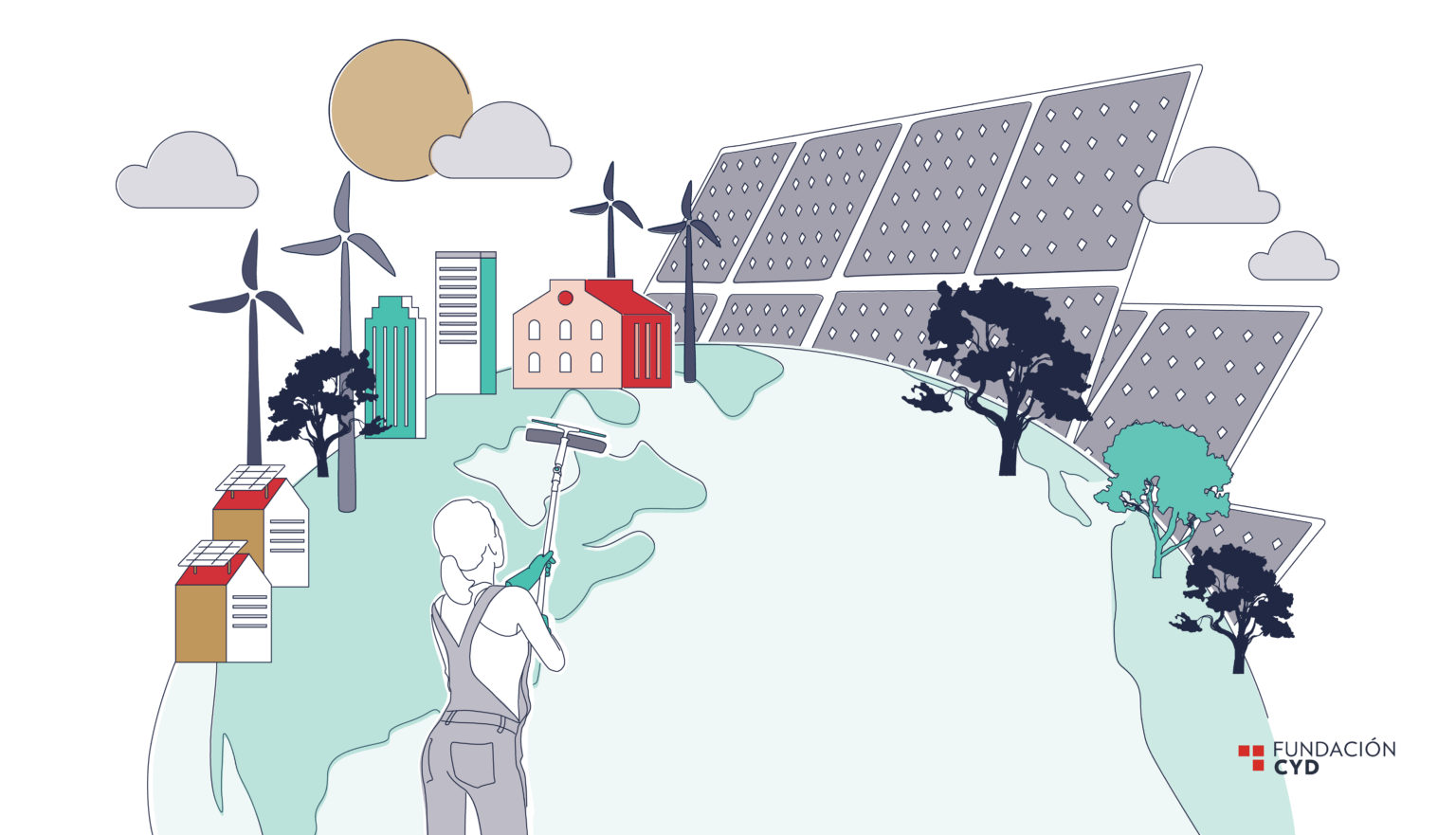A decade working towards sustainable development. The role of the university.
Melina Díaz Christiansen, Fundación CYD
January 10, 2022 13:30 (CET)

It was envisaged 2020 would be a year of action, but it ended up being the year of reaction to the unexpected global phenomenon of Covid-19, which had such an overwhelming, worldwide impact on political, social, economic and educational agendas all over the planet. With the start of such a longed-for new decade, our priorities have been emphasised even further, reaching the level of emergencies that require coordinated intervention: the healthcare emergency, the climate emergency, the socio-economic emergency; these three areas require both individual commitment and collective effort. Far from losing its meaning, sustainable development within institutions is a priority on everyone’s agenda and a joint responsibility shared with future generations as it promotes the idea that we should inhabit our planet, both now and in the future, fully embracing an approach that takes advantage of each and every green and sustainable initiative.
The challenges faced by our society are manifold and complex; they are clearly brought together in a practical way in the 169 goals that accompany the 17 Sustainable Development Goals (SDGs) laid down by the 2030 Agenda, established and adopted by the UN General Assembly on 25 September 2015. The 2030 Agenda provides a shared blueprint for peace and prosperity for people and the planet, now and into the future. The 17 SDGs, which are an urgent call for action by all countries - developed and developing – in a global partnership. They recognize that ending poverty and other deprivations must go hand-in-hand with strategies that improve health and education, reduce inequality, and spur economic growth – all while tackling climate change and working to preserve our oceans and forests. Although the concept has gained prominence and become more widely known in recent years, in fact it dates back to the mid-60s. In the years since then, our lifestyle has changed enormously because of the great advances in science and technology, leading to deeper, more far-reaching and increasingly incisive reflections about models of future development.
In this context, the commitment and responsibility of institutions is far from insignificant. On the one hand, when applied to business strategy as well as to the university world, sustainability goes well beyond the mere fulfilment of legal, fiscal or labour obligations. Companies, universities and, in general, all organisations are aware of the importance of integrating sustainable development in their decision-making, not only to improve efficiency and competitiveness, but also to guarantee the protection of the environment, to put fair and equitable social impact first, and to improve their profitability in terms of profits and costs.
If 2020 was the year of reaction, 2021 has been the year of reactivation; but this is not a revival that simply returns us to a past that we already sought to change, but one that leads us towards a sustainable future that balances the economy, the planet and people.
As regards the social responsibility of the university sector, educational institutions seek to receive regular feedback from society, so that they become more closely involved in social problems, set trends and demonstrate, by means of their accumulated knowledge and practice, what needs to be done to achieve sustainable economic and social systems.
Universities play a key role in relation to sustainability and the SDGs across their entire sphere of influence. The capacity of centres of higher education in teaching, research and innovation, and the transfer of technology and knowledge, as well as their contribution to regional development in the fields in which they lie, are ample proof of the key strategic role that universities play in helping society to address challenges. So much so that it might be said that none of the 17 goals of the 2030 Agenda could be fully achieved without the contribution of the university sector.
What initiatives, projects, actions and programmes are universities and companies carrying out regarding sustainable development? The scale of the change that must take place is enormous, but it is the gradual great steps that will change the course of the climate crisis. This means that, although the SDGs require far-reaching, radical transformations, as well as a Copernican revolution in the way we approach educational and business activities, change begins by leading by example, doing what is being promoted and broadcasting what has been done.
There are many initiatives being undertaken by universities through the creation of new organisational bodies capable of hosting training programmes connected with sustainable development, as well as proposals that encourage the university community to responsibly develop activities and habits in favour of sustainable development and better living conditions in different spaces and facilities.
Now more than ever it is essential that companies, SMEs, public administrations, universities and other institutions express the commitment to collective responsibility that this decade of action represents as a call for sustainable reactivation. The challenges that the planet posed for us some years ago have now become urgent, and, for this reason, we must establish new patterns of behaviour and new habits in line with the underlying ideas of the 2030 Agenda.




